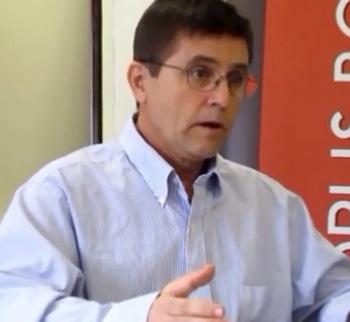The Supreme Court of Canada last week declined to hear an appeal by alleged terrorist Hassan Diab, opening the door for Canadian and French authorities to extradite him to France, where he was charged Saturday in a deadly 1980 synagogue bombing.
The arraignment came hours after Diab, a former sociology professor at both the University of Ottawa and Carleton University, arrived in Paris after being extradited from Canada following a six-year fight to prevent it. The former , seeking to appeal lower court rulings that called for his extradition.
Diab, 60, is alleged by French authorities to have been a member of the Poular Front for the Liberation of Palestine and involved in the 1980 bombing of the rue Copernic Synagogue in Paris, in which a bomb hidden in a motorcycle killed four people and injured more than 40 others. Diab, a Canadian of Lebanese descent who has dual citizenship, has denied the allegations.
Waiting in jail pending the Supreme Court’s decision, Diab told the Ottawa Citizen, “If we don’t get leave, then we will have to fight this legal battle until the end. If it’s in Paris, we will do it there.
“We will never give up. I know I had nothing to do with these allegations and they know it too. This is the biggest hurt of the whole thing,” he said.
Diab’s battle with the Canadian legal system began in 2008, when he was arrested by a SWAT team. In 2011, an Ontario Superior Court judge upheld a French request for Diab’s transfer to their jurisdiction, and in May 2014, the Ontario Court of Appeal upheld that decision.
He sought the Supreme Court’s permission to appeal, but the high court turned him down. The court gave no reasons for its refusal, but the Supreme Court only hears cases on matters of public importance.
Diab’s lawyer, Donald Bayne, argued in submissions to the court that it should consider the case to determine whether untested intelligence evidence should be used to extradite his client and whether such secret information violated Diab’s charter right to procedural fairness.
But government lawyers said that “surrender should only be refused owing to trial fairness concerns if it is demonstrated that the criminal laws or procedures in the requesting state shock the Canadian conscience.”
“Diab is now subject to immediate removal,” Clarissa Lamb, spokesperson for the minister of justice and attorney general, said last week after the Supreme Court declined his request..
Lamb noted that “the judicial phase of the extradition process is a determination only that the evidence is sufficient to warrant that the person be extradited. It is not a trial. A trial will take place in the requesting state.”
“The anti-Semitic bombing in 1980 was a horrific crime that killed four people and injured dozens of others. Canada condemns this cowardly act of terrorism against innocent civilians,” she added.
Stéphane Schorderet, spokesperson for the French Embassy in Ottawa, said, “The embassy… wishes to reiterate that at this point in time and with regard to French law, Mr. Hassan Diab is presumed innocent. In France, he will be heard by an investigating judge in an open judicial inquiry regarding the attack that took place on Oct. 3, 1980, on rue Copernic, in Paris.”
“It’s tragic,” Bayne told the Citizen shortly after hearing the top court’s decision. “I was shocked. We now have the classic recipe for the wrongful conviction of a Canadian citizen.”
Dozens of Diab’s supporters, including many academics, released a letter last week calling on the federal justice minister “to substantially revise current Canadian extradition law. We further demand that the federal minister of justice refuse the request from France that Dr. Hassan Diab be extradited, a refusal that ought to have been rendered six years ago when this nightmare began. Canadian extradition law is a farce.”
The Centre for Israel and Jewish Affairs (CIJA), welcomed last week’s developments.
“Like all democracies, Canada’s judicial system has a number of appeal processes in place, and Mr. Diab’s legal efforts have now been exhausted. We are pleased that the highest court in the land will honour the French extradition request and allow the accused to return to France so the victims may have their day in court. Mr. Diab will now be able to defend himself before France’s judicial system, which is as impartial as Canada’s,” said CIJA CEO Shimon Fogel.
“We are pleased that authorities in France and Canada pursued this case even after more than 30 years since the murderous attack on the Paris synagogue. This sends an important message: that diligent, committed authorities will never cease in their pursuit of justice against terrorists on behalf of their victims,” Fogel said.
